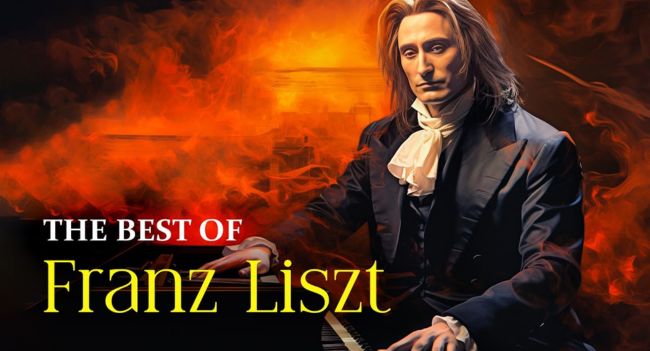The remarkable influence of Franz Liszt: How Lisztomania transformed classical music, inspired unprecedented hysteria, and cemented the musician’s role as a cultural icon
A virtuoso pianist
In the history of music, few artists have caused as much of a stir as Franz Liszt, the 19th-century Hungarian virtuoso pianist and composer. His talent and skills as a performer gave rise to a unique phenomenon known as “Lisztomania.” This term was used to describe the public’s obsession and collective hysteria surrounding Liszt’s persona. Lisztomania was more than just a passing fad; it was a cultural phenomenon that changed the way people experienced and appreciated music in the Romantic era. In this article, we will explore Lisztomania, its origins, how it manifested in Franz Liszt’s life, and its impact on the world of music.
Music is the divine way to tell beautiful, poetic things to the heart.
Franz Liszt
Origins of Lisztomania
Franz Liszt was born in 1811 in what is now Hungary. From an early age, he displayed prodigious talent on the piano, and he quickly became a renowned virtuoso. Throughout his career, he developed a passionate fan base, largely due to his on-stage skills, charisma, and ability to improvise.
Lisztomania emerged in the 1840s when Liszt embarked on a series of concert tours throughout Europe. His performances were highly anticipated and well-attended events, and his energetic and passionate performance style captivated audiences. The term “Lisztomania” was coined by German writer Heinrich Heine in 1844 to describe the hysteria and adoration surrounding Liszt.
Did you know that Franz Liszt was a musical prodigy and began studying piano at the early age of 6, performing his first public concert at the age of 9?
Manifestations of Lisztomania
Lisztomania manifested in various ways. Liszt’s fans would fight over his personal belongings, such as gloves, handkerchiefs, and even locks of hair. His followers also tried to collect souvenirs from his concerts, such as fragments of the piano strings broken during his energetic performances. Additionally, the fervor for Liszt led to the creation of a secondary market in which fake tickets to his concerts and purportedly Liszt-owned items were sold.
Lisztomania also had an impact on the fashion of the time. Men adopted Liszt’s hairstyle, which consisted of long, curly hair, and began dressing similarly to him. Even women were not immune to Liszt’s charm, and many would faint or cry during his performances.
Beware of self-indulgence. The romance surrounding the self-destructive artist has as much to do with art as fast cars do with transportation.
Franz Liszt
Impact of Lisztomania on Music

Lisztomania had a significant impact on music and the culture of the time. For one, Liszt popularized the solo piano recital format, in which the performer plays a selection of pieces rather than participating in concerts with an orchestra. Moreover, his ability to improvise and his passionate style influenced other musicians and changed the way audiences viewed and experienced live music.
Lisztomania also helped to cement the role of the musician as a public figure and a celebrity. The adoration and attention Liszt received were precursors to modern celebrity culture, and his influence in the musical and cultural realm was so profound that we can consider him the first pop idol of classical music.
Did you know that Liszt was known for his ability to improvise on the piano, making him one of the main attractions of 19th-century classical music?
Liszt passed away on July 31, 1886, in Bayreuth, Germany. His legacy, however, lives on through his music and the many musicians he inspired and mentored. Liszt’s contributions to Western classical music were vast and significant, and his technical mastery and creative vision continue to captivate and inspire musicians and audiences around the world.
To make it clear
Lisztomania was a unique musical and cultural phenomenon in its time. Franz Liszt’s talent and magnetic personality captivated the public of the Romantic era and left a lasting legacy on the way we experience and appreciate music today. Through Lisztomania, we can better understand the impact of a musician on society and how a single individual can change the perception and course of music history.

